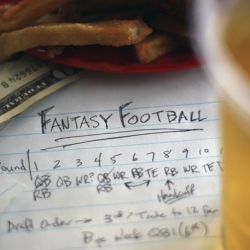
Senate passage was the first step to legalization, but insiders believe the fantasy sports bill will be signed by Gov. Bill Haslem.
The State Senate of Tennessee voted on Wednesday to unanimously approve a bill which would legalize fantasy sports in the state. The vote was 29-1 to make it legal for the state’s 1,000,000 fantasy sports owners to gamble legally, according to Senate Commerce Committee Chairman Jack Johnson, a Republican from Franklin.
The bill now goes to the State General Assembly. If passed there, Gov. Bill Haslem could sign the bill into law. While those are two significant hurdles, most of the speculation in media outlets like the Chattanooga Times Free Press suggests momentum for the law.
Jack Johnson on AG’s Input
Sen. Jack Johnson said the Senate’s legislation was designed with the input from Tennessee Attorney General Herbert Slatery. While Slatery did not give the legal opinion himself, the suggestion by Johnson was Slatery’s lawyers stipulated fantasy sports as a game of skill, so it should not be classified as a lottery.
Because the AG’s office seems to view with fantasy sports as a different form of gaming from the state lottery, Sen. Johnson took that to mean the legislature should get involved. As he told the Chattanooga Times Free Press, “Then you have to deal with it in statute.”
FanDuel and DraftKings Would Be Legal in Tennessee
The deal should give daily fantasy sports companies like FanDuel and DraftKings the right to operate legally in Tennessee. To do so, the DFS companies would need to apply for a license and pay for the license application. Besides being charged the licensing fees, DraftKings and FanDuel would be charged corporate taxes on their revenues.
Given the last 6 months of controversy, that is likely to be good news for the DFS websites. At times over the last few months, it appeared as if the daily fantasy sports industry was ready to unravel, as regulators and attorney generals across the United States appeared ready to ban the practice.
DFS Industry Making a Recovery
In recent weeks, positive signs have emerged. First there was the word that DraftKings and FanDuel had come to an agreement with New York AG Eric Scheiderman on arrangements which might allow DFS to flouish in New York State — depending on the state legislature’s ability to pass fantasy sports laws this summer.
Then last week, Indiana Governor Mike Pence signed a bill into law which legalized, regulated, and licensed online daily fantasy sports sites. In Colorado, it was announced that a bill would be discussed to regulate the fantasy sports industry in that state. Meanwhile, Massachusetts appears ready to pass regulations which would legalize and tax DFS in that state.
Fantasy Sports Bill in the USA
At least 30 legislatures across the United States are now considering new laws or regulations in the fantasy sports community. Some of those discussions involve restrictions or bans, so not all the news is good. Still, DraftKings and FanDuel appear to be on their way to gaining legitimacy throughout most of the USA.
Fantasy sports is played by an estimated 40 million to 50 million Americans each year. Most of that activity involves yearly fantasy sports based on football, baseball, basketball, or hockey. Most of that activity involves gambling, but on a limited basis among friends. Because it takes 4 to 8 months to resolve the bets in “yearly” leagues, no one ever considered such gambling to be dangerous. The UIGEA had a carveout for that form of gambling.
American Attitudes on One-Day Fantasy Sports
Daily fantasy sports is seen in a different light. DFS also takes real world statistics and converts them into individual fantasy points, but players enter these contests as one-day propositions. They can enter many contests at once, and play games for real money 365 days a year.
Many people see little difference in online sports betting — which is illegal in the United States — and daily fantasy sports. Yet many DFS players say the skill level required make it a different proposition. Since most fantasy players see it the same way, DFS has skated by for years.
Lawmakers, officials, and US attorneys have grown concerned that this is an unregulated billion dollar industry. Also, players might fall prey to the depradations of problem gambling, or something quite similar to it. So many have called for proper regulations, to assure the gaming public is protected from excess.
